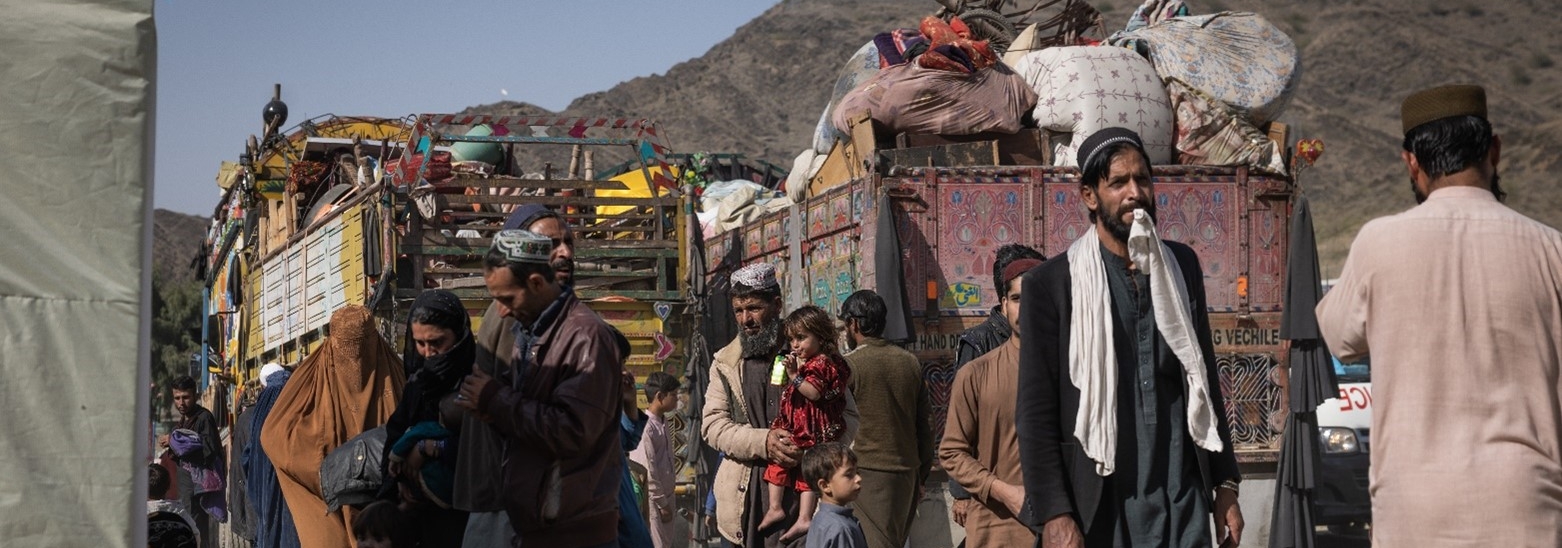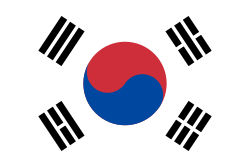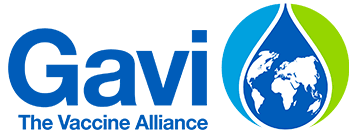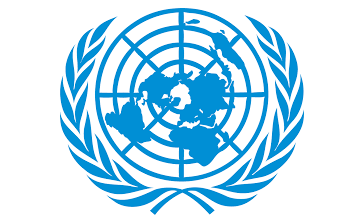IOM Vision
Afghanistan is facing chronic poverty and economic instability and dangerously approaching systemic collapse. With over 2.6 million Afghans driven into displacement since mid-August 2021, Afghans, and in particular women and girls, face increasing needs, risks and vulnerabilities in Afghanistan as well as in neighbouring countries. IOM seeks to address the humanitarian and protection needs of affected populations in the region, whilst strengthening the resilience of Afghans and host communities to reduce displacement risks and helping people and communities to transition and recover.
Objective
Saving lives and protecting people on the move
Across the region, IOM aims to deliver timely and effective multi-sectorial life-saving humanitarian assistance and protection to people on the move and affected populations in coordination with the humanitarian and UN country teams and partners on the ground. IOM will also continue to provide life-saving humanitarian assistance to disaster affected populations as well as provide winterization assistance to displaced populations and vulnerable communities in affected areas. The majority of Afghan nationals in neighbouring countries face acute protection, medical, and livelihood needs, which require IOM’s support – particularly for Amayesh Cardholders and unregistered Afghan nationals. Programming is implemented through a participatory approach involving the affected populations in all steps of the programme cycle to promote a needs-based and inclusive response.
IOM’s evidence-based interventions are founded on data collected through both its Displacement Tracking Matrix (DTM) and partners. IOM will collect information on the vulnerabilities of affected groups and migration movements with neighbouring countries. In Pakistan, IOM expects to focus on climate-induced displacement data and data collection on Afghans according to the trends that will be observed in 2024 in view of the increased pressure of the Government of Pakistan to repatriate Afghans. In Kazakhstan, Tajikistan, Turkmenistan and Uzbekistan, IOM will conduct advocacy, training and sensitization workshops on DTM and on the importance of broader data collection and analysis on migration, including on Afghan populations, with government officials, including border guards and national specialists. Data collected by IOM and related products will improve the capacities of UN agencies, NGOs, sectors, technical working groups, and government entities in providing better targeted, evidence-based responses to people on the move.
In Afghanistan, IOM’s Cross-Border Post-Arrival Humanitarian Assistance (CB-PAHA) programme aims to assist vulnerable undocumented Afghan migrants crossing one of four major land border crossing points upon their arrival. These programmes include movement assistance as well as basic health services through the Migration Health team, and collaboration with partner organizations to address child protection, including GBV risk mitigation efforts. IOM manages eight reception and transit centres at these border points. These will continue to provide assistance for vulnerable undocumented returnees including screening and registration, meals, overnight accommodation for up to 72 hours, needed non-food items (NFIs), Multi-Purpose Cash Assistance (MPCA) and referrals to relevant programs. This programme will provide entry points for a range of critical IOM interventions such as protection, health, disease surveillance at the borders and humanitarian border management, as well as for other partners who also operate within the centres delivering other specialised services, such mine risk education. If feasible, IOM will also respond to people in need in communities and settlements that may form around border areas, where further movement of people is anticipated as the situation evolves.
In Pakistan and Iran, IOM will use a combination of in-kind and cash-based interventions (CBI), including MPCA to vulnerable migrants and their host communities, to address the basic needs of vulnerable Afghan migrants and host communities.
In Kazakhstan, Tajikistan, Turkmenistan and Uzbekistan, IOM will provide MPCA to vulnerable Afghan migrants who cannot afford necessities including food, shelter, clothing and other NFI.
As the global co-lead of the CCCM cluster, IOM aims to reinforce its support towards the coordination of the working group as well as its operational presence at site-level and coordination with neighbouring countries.
IOM Afghanistan through its CCCM programming seeks to provide humanitarian aid and essential services to IDPs, returnees (including forced returns of undocumented Afghans) and underserved host communities through a system of interconnected Community Resource Centers (CRCs) and mobile outreach teams, especially in the most underserved and hard-to-reach areas. IOM’s interventions will include building community participation mechanisms (i.e. camp committees composed of displaced populations and host community representatives, including of women, elderly and youth groups), linking displaced populations to the relevant local governmental or de facto counterparts, and strengthening access to basic services through site development and risk-mitigation activities.
IOM will also conduct systematic information management, and advocacy to inform and mobilize local actors and humanitarian partners adequately, such as the CCCM Working Group (WG) in Afghanistan which was established to coordinate the provision of humanitarian assistance to IDPs living in precarious conditions in informal settlements scattered across the country. Site planning will primarily focus on rationalizing shelter alignments and spacing within the sites, improving drainage, lighting, creating WASH corridors, improving accessibility with a view of reducing exposure to public health and GBV risks as well as fire hazards as well as the construction or rehabilitation of essential infrastructure. IOM, through the CCCM WG and Housing Land and Property (HLP) task force (lead by UN Habitat and the Norwegian Refugee Council) in Afghanistan, has been engaging with the DFA to advocate for a more principled approach for returns and durable solutions (DS) for IDPs facing the threat of eviction. Meanwhile IOM has established informal settlement focal points in Kabul and Nangarhar provinces to regularly monitor the situation in informal settlements under eviction threat and to share the information collected with the wider group of partners to further engage and advocate for a principled return approach. IOM will also support the identification of durable solutions and facilitate, local integration, relocation/resettlement or return and reintegration as relevant. This includes IOM’s coordination efforts as co-lead of the DS WG alongside UNHCR, UNDP and UNICEF, under the overall leadership of the Resident Coordinator’s Office.
In Iran, IOM seeks to provide movement assistance to vulnerable migrants and family reunification in case of emergencies, including disasters. IOM provides safe and dignified movement assistance using a people-centred and protection-oriented approach, which includes protection and medical screening as part of pre-activities as well as additional pre-departure assistance including MHPSS, pre-embarkation checks, consular assistance, medical and legal support, provision of escorts, transit assistance (escorts for vulnerable protection or health cases, including for children and persons with disabilities), and immediate post-arrival assistance such as accommodation, onward transportation assistance, and light material assistance.
In Afghanistan, Pakistan and Iran, IOM will support the provision of lifesaving primary and secondary health care services, including MHPSS in Afghanistan, to IDPs, returnees, migrants, refugees and other mobile populations, including for women and girls, and host communities, by ensuring the availability and accessibility to the basic package of health services, including outpatient management of communicable and non-communicable diseases; MHPSS; child health consultations, immunization, screening and referrals for malnutrition; sexual and reproductive health services, and emergency referrals. IOM will deploy mobile medical teams and expand health activities overall, including in border areas, and will conduct health and hygiene promotion as well as Risk Communication and Community Engagement activities.
In Uzbekistan, IOM will continue its collaboration with local partners to expand the thematic and geographic scope of the Mobile Migrant Resource Center (MMRC) through which provides health services and referrals (in addition to other forms of non-medical assistance).
IOM Turkmenistan will continue to provide access to enhanced comprehensive medical services to Afghan nationals and local communities through the MMRC.
In Afghanistan, IOM will implement community based MHPSS to promote, protect, and support the psychosocial well-being of the crisis affected population in Afghanistan. Following the IOM Manual on Community-Based Mental Health and Psychosocial Support in Emergencies and Displacement, IOM will target both IDPs and vulnerable returnees, as well as vulnerable members of the surrounding host communities affected by the crisis. IOM will deploy MHPSS counsellors as part of the migration health teams who will offer family and community support, facilitate socio-relational, cultural, creative, and art-based activities, in addition to focused support through counselling at individual, family and group level. Raising community awareness on MHPSS topics, psychoeducation and referral to specialized mental health care, are also part of the services. IOM will further conduct training for local stakeholders on the provision of psychosocial first aid (PFA), basic psychosocial skills and other relevant MHPSS topics. IOM will continue to ensure that standards and procedures are followed, responses are coordinated, and that a common understanding is established among MHPSS response partners on MHPSS concepts and terms. IOM will co-chair the subnational MHPSS working group in Herat.
In Pakistan and Iran, IOM will provide MHPSS services to vulnerable Afghan and host communities, including PFA, group and individual counselling sessions, expressive art and/or play and therapy, and community activities for migrants, including for migrant children. IOM will provide training on these areas of interventions to health care workers and community members. Coordination and cross-referrals between MHPSS and protection teams and programmes will also be established.
In Afghanistan, Pakistan and Iran, IOM aims to strengthen the protection environment and address the needs and uphold the rights of the most vulnerable (including children, older people, women and persons with disabilities) through legal services, protection analysis and research, case management, community-based protection, specialized services for gender-based violence (GBV) and trafficking survivors, women and girls’ friendly spaces, and dignity kit distributions. IOM’s seeks to strengthen protection analysis in areas of high mobility and cross-border locations by identifying and providing targeted protection services and assistance for persons with specific needs, including through case management and individual protection assistance and/or referral to partners’ services. It will also strengthen referral mechanisms and partners’ protection knowledge and skills including on protection mainstreaming, PFA, gender-based violence (GBV), child protection, legal assistance and counselling on civil documentation, counter-trafficking and best practices in terms of assisting people with protection needs. IOM will seek to enhance community-based protection mechanisms and increasing protection actors’ capacities to provide timely and quality protection services, including access to information on services, asylum procedures, and other relevant topics as well as ensuring protection mainstreaming across all of IOM’s programmes.
In Tajikistan, IOM will focus on providing protection services to the most vulnerable individuals and households. The approach involves tailored integration assistance aimed at addressing fundamental needs in several key areas including food assistance, prevention of violence and abuse and direct assistance. IOM will see to address immediate needs for sustenance by providing food aid or access to food resources for those in vulnerable situations. IOM will also implement measures to prevent instances of violence and abuse against vulnerable individuals or households, which may include educational programs, counseling, or providing safe spaces. Finally, IOM will offer direct support to meet the immediate needs of vulnerable cases, such as shelter, medical aid, or basic needs, as well as referrals to specialized services.
In Afghanistan, Pakistan and Iran, IOM will focus on ensuring that people in areas of high mobility, return, protracted displacement, in displacement sites and at key border crossing points have access to clean and safe water in sufficient quantity as well as sanitation and hygiene sustainable infrastructure and services. Hygiene promotion and the distribution of hygiene kits will be integrated into the sectoral response whilst efforts will be made to integrate gender and protection concerns. IOM will aim to prioritize delivering a minimum package of WASH services that includes construction, expansion and/or rehabilitation of WASH facilities, management of water schemes through creation of gender-balanced community-led WASH committees, culturally appropriate safe hygiene messaging and organizing hygiene promotion and awareness raising activities (focusing on risk mitigation measures for transmittable diseases such as Acute Watery Diarrhea (AWD) or cholera). IOM will also establish a core pipeline for WASH supplies and provide basic hygiene kits inclusive of menstrual hygiene management items.
In Afghanistan, Pakistan and Iran, IOM’s shelter interventions aim to preserve the immediate safety and well-being and to gradually improve the living standards of vulnerable Afghan IDPs, returnees, refugees, migrants and their host communities. A combination of in-kind and cash for shelter assistance will be used depending on the context and in line with the ES/NFI cluster standards. To respond effectively, IOM will identify specific needs and vulnerabilities, including protection concerns, of beneficiaries (especially women and girls) through sectoral assessments. IOM’s interventions will include shelter assistance, including for winterization, for people directly impacted by new shocks such as natural hazard or conflict-induced displacement. This includes procurement, pre-positioning and distribution of shelter items for IDPs, cross-border returnees and refugees, and other extremely vulnerable populations.
IOM will also provide transitional shelter support, in the form design, set-up/construction, upgrades of transitional/core shelters and housing, and market-based interventions that include cash to access shelter/housing in areas of protracted displacement, high return and newly accessible areas to enable safer and more dignified living standards and prevent recovering communities from slipping back into a situation of humanitarian need. Where possible, IOM will incorporate disaster resilient design in construction and provide training and guidance on this area for the longer-term. This will require active participation and engagement in country-level coordination mechanisms (including the co-leadership of the ES/NFI cluster in Afghanistan, that also covers the CCCM WG) to ensure a timely, effective, context-specific and needs-based sectoral response.
In Pakistan, IOM will apply an integrated settlement approach that incorporates WASH and housing land and property (HLP) and links to livelihoods and economic recovery programming according to priority needs identified using Community-Based Planning. This will involve providing support to uphold, improve, and restore security of tenure of community households or informal settlements, through occupancy contracts, due diligence, restoring documents, and informal settlements upgrades.
IOM Iran supports the Government of Iran to strengthen its policy, operational systems, human resources, and administrative and technical structures required to respond more effectively to migration and border management challenges at times of humanitarian crises. IOM aims to support Iran in combating trafficking in persons and smuggling of migrants through a range of activities and initiatives, including the provision of capacity building to improve preparedness and establish adequate response mechanisms to protect nationals and foreigners crossing the border while ensuring that the security of the border is maintained. Through Humanitarian Border Management activities such as training, consultations, and material upgrades, IOM seeks to help Iran in building and improving response to crisis settings on two fronts: a. Protecting crisis-affected migrants and nationals, and guaranteeing their human rights, dignity, and interests in accordance with international law; and b. Preserving national sovereignty and ensuring border security in accordance with national protocols. This is done at pre-, in-, and post-crisis phases.
Through DTM, IOM will continue to monitor cross-border and in-country population mobility, as well as trends, vulnerabilities and needs associated to it, to inform the humanitarian response and build long term durable solutions on the ground. This will be implemented using a participatory, inclusive and evidence-based approach involving the affected populations.
In Afghanistan, IOM will conduct the Afghanistan Mobility and Needs Assessment on population mobility trends, numbers and locations of displaced and vulnerable populations, reasons for displacement, needs and gaps in access to services. This will be complemented by Flow Monitoring at four major border crossing points, counting the number of daily movements, provinces of origin, destination, and reasons for movement. IOM will conduct rapid assessments in disaster-affected locations in the immediate aftermath of an incident to assess needs and impact. In cases of eviction, as there is sometimes knowledge in advance that one will take place, DTM will conduct a pre-return assessment. In addition, through a Population Movement Task Team, IOM and UNHCR will work together to harmonize displacement data across the country focusing on protracted displacement and IDP returnees.
In Pakistan and Iran, DTM tools and processes will provide IOM and partners with analysis for all evidence-based interventions, especially on rapid identification of areas and populations (including IDPs, returnees and other migrants, in particular Afghan nationals) in most need. It can be expected that the focus will be on climate-induced displacement data.
In Tajikistan, IOM will promote intersectoral partnership and advocate for DTM in sensitization sessions with border guards and trainings of relevant national specialists.
In Afghanistan, IOM will develop a contingency plan for the returns of Afghans from Pakistan and Iran, as well as preposition shelter, NFIs, and winterization in-kind items to enable a response to sudden onset disasters and shocks such as earthquakes or floods (including resulting disease outbreaks). This will also involve prepositioning of WASH Core Pipeline items.
In Pakistan, IOM will keep supporting government authorities and CSOs to build their capacities for emergency preparedness, in particular disaster preparedness in line with humanitarian principles. IOM will implement the following through community-based disaster risk reduction (DRR) by conducting assessments such as hazard vulnerability and risk assessments, developing the capacity of stakeholders and establish Community Emergency Response Teams to mobilize first responders where aid can be delayed in case of disasters, further developing contingency planning, with all stakeholders involved and in synergy with other programmes, to be prepared to provide multi-sectoral support, including emergency cash and NFIs, social cohesion and access to services and referral for targeted assistance.
In Tajikistan, IOM will provide modular facilities at the border for border health preparedness and training for border guards on humanitarian border management. In Uzbekistan, IOM will provide capacity development activities for Government at all levels on migrants’ rights in emergencies, including as a preparedness measure for migrants in crisis situations. In Kazakhstan, IOM will enhance the capacity of border services, including curriculum development and support to ensure gender specific needs are met at Border Crossing Points, alongside regional dialogues on border management and governance, particularly in emergencies.
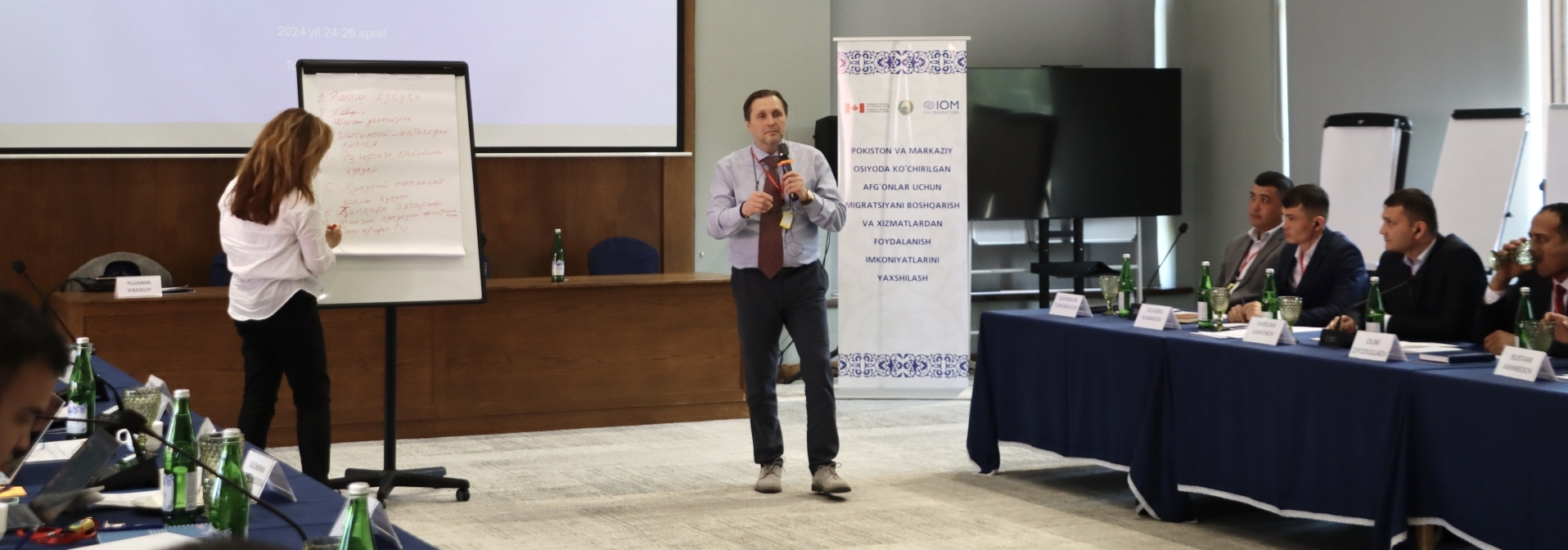
Objective
Driving solutions to displacement
IOM uses an adaptive process and durable solutions approach that is responsive to people on the move and displacement affected communities in Afghanistan and neighbouring countries, to support authorities and societies for inclusive integration and sustainable localized recovery planning.
IOM’s programming aims to enhance the resilience of individuals and communities through addressing the drivers of human mobility, including socioeconomic needs of Afghans transiting or settled in neighboring countries and vulnerable host populations, including Afghan refugees, as well as returnees in high-return provinces of Afghanistan. IOM will work with national local and national authorities in neighboring countries to enhance the systems and structures dedicated to provide health, protection and integration services to migrants and refugees in the country.
IOM will support governments, including national and local authorities, CSOs and community leaders through multi-sectoral area-based recovery that will support disaster-affected populations in their recovery, and build resilience against future disasters. IOM will primarily focus on enhancing the resilience and preparedness of vulnerable communities populations living in disaster-prone areas in Afghanistan and neighbouring countries. Finally, attention will be given to vulnerable and marginalized groups within Afghan society, such as women and girls, children, older people, and persons with disabilities.
IOM Iran will specifically work with government officials and humanitarian partners on capacity building initiatives on DRR and prevention, including training on CCCM and evacuation planning and management.
IOM Pakistan will use its community-based planning (CBP) methodology where IOM and its partners work closely with community members and leaders, and local authorities to conduct risk communication, plan and prioritise interventions, and in the process foster social cohesion. It will also support the Government of Pakistan to improve its preparedness plan and climate-resilient housing rehabilitation or construction of communal infrastructure to reinforce community-level basic services.
IOM Kazakhstan, Turkmenistan, Tajikistan and Uzbekistan will continue to work with national and local authorities, including key ministries, to strengthen contingency planning for disaster-induced displacement. In Turkmenistan, IOM will work on large-scale infrastructure repair that will benefit migrants and host communities. In Tajikistan, IOM is helping to build State capacity in providing WASH services for preparedness in public health centers and for water systems, as well as border health preparedness through border guard trainings and provision of border modular facilities.
In Afghanistan, IOM will accelerate delivery of area-based humanitarian, early recovery, reintegration and resilience projects across displacement and conflict-affected communities. To do this, IOM will develop district/provincial profiles to guide evidence-based strategic and essential infrastructure projects, to provide communities with basic services while building community resilience to withstand shocks. It will undertake participatory community development and action planning to increase civic engagement, strengthen local ownership and identify context-specific solutions for addressing the vulnerabilities of different social groups, particularly marginalized groups, to enhance social cohesion and strengthen communities’ response capacities to shocks and stresses. IOM Afghanistan will also provide emergency livelihood and economic recovery assistance, including through cash-for-work on construction sites, asset replacement and emergency business grants in support of economic recovery. Where possible, referrals of vulnerable individuals from IOM’s cross-border and protection programmes will be provided and support upon their return to areas where stabilization or durable solutions activities are ongoing.
In Pakistan, IOM will enhance civic engagement, promote social cohesion and extend support for displaced households and communities. IOM provides tailored support for remote and marginalized communities along the Pakistan-Afghanistan border, including support where poverty, illiteracy and unemployment are key drivers of instability and community tensions. In coordination with different key stakeholders, including national and local authorities and civil society organizations, activities will be conducted to address root causes of community instability by further enhancing livelihoods and empowering community members, and to promote understanding and harmony among the diverse communities, in particular in remote regions.
IOM Iran will support sports, cultural and economic activities towards strengthening cohesion within the respective communities.
In Tajikistan, IOM will support integration of local communities and Afghan population through social cohesion activities, joint events, and State outreach for information sharing and service delivery. The mission will also provide health consultations in partnership with State authorities. Access to Information: Ensuring that individuals have access to relevant and critical information. This might include information about available services, rights, resources, or support networks. Access to Legal Services: Supporting vulnerable cases and households with access to legal aid. This could involve assistance with legal documentation, rights awareness, or navigating legal processes
In Kazakhstan, Turkmenistan and Uzbekistan, IOM will partner with civil society organizations and local government to operate mobile assistance centres who will provide legal assistance, MHPSS, health, internet skills instruction, and referrals for other services, as well as work on migrant rights and integration. IOM will implement community-led infrastructure rehabilitation projects in areas with high numbers of Afghan migrants.
Livelihoods support, including as described under Livelihoods and Economic Recovery, is an integral part of Community Stabilization efforts.
In Afghanistan, IOM supports community infrastructure projects for economic revitalization and sustainable livelihoods, especially for women, access to essential basic services, and community cohesion. IOM ensures that it implements activities that benefit both displaced or returned and host community, while aiming to reduce the root causes of displacement and migration, by strengthening social, economic and psychosocial resilience of displacement affected communities, considering vulnerabilities specific to gender, age, and ability, among others. It aims to revitalize local economic conditions by supporting the business eco-system and increasing human capital, thereby safeguarding existing jobs and creating new ones, and by (re)constructing productive and basic social service infrastructure, including health clinics and schools.
In Pakistan, economic hardship and limited livelihood prospects remain primary concerns for both Afghan nationals and vulnerable host communities in Pakistan. To strengthen their economic resilience while promoting social cohesion within the longer term, IOM will continue supporting them with livelihood opportunities. More specifically, IOM will provide its beneficiaries with and range of support including: (1) Individual Livelihood Assistance (ILA) to promote the development of a trained workforce for local businesses. Activities will include training on soft skills required to set up and manage micro-businesses (Business Support Package), vocational training, and on the job training. (2) Financial capital to support the expansion of their small or medium-sized businesses, increase their productivity and allow for the creation of new sustainable jobs through IOM’s Enterprise Development Fund. (3) Cash-for-work to engage and empower community members to restore basic services and improve communal spaces, allowing for social integration and cohesion. (4) Improved access to basic services through Quick Impact Projects consisting in rehabilitating community-based infrastructures.
In Iran, IOM seeks to promote the self-reliance of displaced communities through initiatives that seek to increase access to income-generating opportunities, employment and livelihood opportunities for vulnerable Afghans and host community members. IOM designs targeted interventions including supporting job creation by providing market-oriented skills development opportunities for Afghans and host community members, as well as support for their start-ups or to expand micro, small and medium enterprises.
In Central Asia, IOM also supports livelihoods through community and individual grants, vocational and soft skills training, apprenticeships, and advocacy work in partnership with UNHCR for enhanced access to labour market for refugees. IOM Tajikistan will partner with local organizations and local governments to conduct assessments, to develop integration plans, and to deliver a curriculum on small business development and management to Afghan women and vulnerable members of host communities. Following the training, women will receive in-kind support and/or vouchers to purchase raw materials. In the first phase of this initiative, IOM will focus on women, who have been disproportionately affected by limited income generating opportunities. Access to livelihood and educational opportunities has been identified as a substantial need by Governments and communities in Kazakhstan, Turkmenistan, and Uzbekistan. IOM and partners will work to identify specific needs and provide technical support where necessary.
In Iran, to ensure that Afghans have access to primary healthcare without overburdening the Iranian health system, IOM is actively supporting the national health sector in several ways, such as providing essential health equipment and enhancing the infrastructure of healthcare facilities. Beyond the support to static health facilities, IOM will directly support the MoH by equipping mobile units to serve remote areas and refer patients in need of higher level care into the health care system, which helps to strengthen the overall health system in Iran. These mobile units aim to improve health services in border regions with high migrant flows, offering direct accessibility to communities that are hard to reach.
In Uzbekistan, IOM will support vulnerable Afghan migrants to access public services such as health care due to legal status challenges that make it difficult, expensive, or impossible to access services, particularly for women who are at greater risk of financial hardship. IOM Uzbekistan plans to conduct a health needs assessment (i.e. regarding needed medical equipment) and engage a medical consultant to support the development of Standard Operating Procedures for medical services provided to migrants.
In Iran, IOM will conduct sociorelational and creative and arts-based activities, counselling, individual and community awareness-raising, and focus group discussions while continuing to strengthen referral pathways to specialized mental health care services. MHPSS services will be provided as a part of protection case management, based on ad-hoc needs, and during planned interventions such as women and girls friendly spaces, among others.
In Tajikistan, IOM will deploy a MHPSS mobile team, which includes State actors, to provide services at the community level and increase the knowledge, practice and awareness of State actors with regard to MHPSS.
In Pakistan, as part of its comprehensive protection programme, IOM will work to address challenges related to housing, land and property (HLP) issues, including lost or destroyed official papers, houses being occupied by another household or other general needs for legal assistance, with the aim to remove barriers for Afghan nationals and disaster-affected persons to access HLP rights. IOM will provide legal counseling, disseminate information, and train partners on HLP.
In Afghanistan, as part of preparedness efforts to strategically assist disaster-prone communities that face a higher risk of disaster-induced displacement and in line with the Sendai Framework, IOM will support disaster risk management (DRM) efforts through multiple activities. These include the establishment of community-based disaster risk reduction (DRR) infrastructure in complementarity with the repair or construction of damaged or destroyed community infrastructure, such as irrigation canals and gabion walls (to protect agricultural land), roads, schools, clinics, and water and sanitation facilities (to protect people). Many construction-related projects look to address the fundamental causes of migration through the provision of water, sanitation, access to transport, health services, education, and livelihoods. By developing and rehabilitating vital community hubs and services, the aim is to reduce migration caused by lack of essential services while providing community members with short term cash-for-work opportunities. In addition, IOM will implement Community-Based DRM in local communities to develop Community Disaster Management Action Plans and establish community early warning and preparedness systems to mitigate risk and enable a more effective response. IOM will also conduct hazard and vulnerability mapping and analysis to support communities further in DRM and enhance their resilience to and preparedness for natural disasters, as well as NGOs and implementing partners working in the field of disaster management and humanitarian assistance.
In Turkmenistan, IOM will conduct awareness raising among members of Afghan and local communities, local authorities and community leaders on climate change resilient development and adaptation measures in response to the climate change impacts and insecurities, including emergency preparedness planning and measures at the local level, such as efficient water use.
Afghanistan, Pakistan, Iran (Islamic Republic of), Kazakhstan, Tajikistan, Turkmenistan, Uzbekistan
The map used here is for illustration purposes only. Names and boundaries do not imply official endorsement or acceptance by IOM.
Figures are as of 31 December 2023. For more details of IOM's operational capacity in country, please see the IOM Capacity section.

